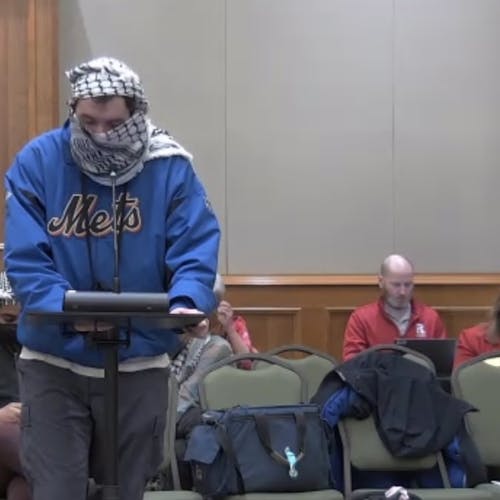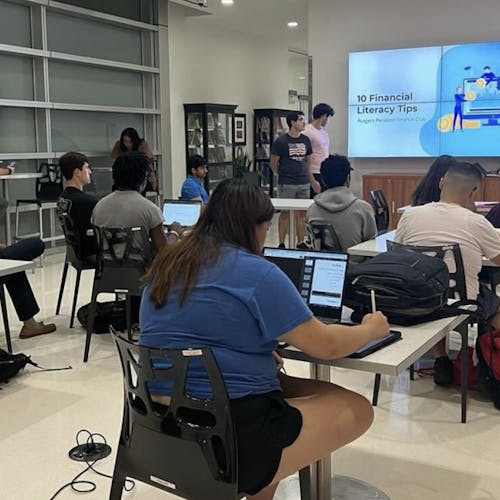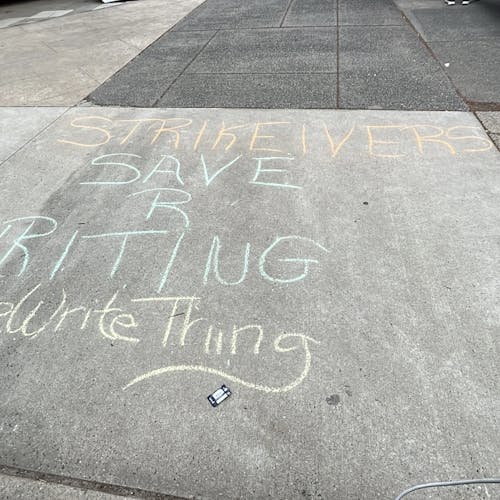Rutgers alumna featured in New York Times for founding nanny advocacy group

Undocumented child care workers are likely to receive extremely low pay and suffer exploitation, harassment and abuse at work, according to the Institute for Women’s Policy Research (IWPR).
Alene Mathurin, a Rutgers alumna, is working to change that fact with her organization My Nanny Circle.
Mathurin immigrated to the U.S. from the Caribbean island of St. Lucia. She worked as a nanny for many years and is now empowering and protecting nannies from all backgrounds through her advocacy work.
Her organization and website are a support system for women in child care services, she said.
“I realized that nannies needed a voice. I realized that there I was, an immigrant working as a nanny and there were stereotypes about nannies that were unfounded, stereotypes that needed to be dispelled. I realized that nannies need to be better trained,” Mathurin said.
Mathurin's work was recently featured in a New York Times article, "Nanny on a Mission."
She told The Daily Targum she recognizes the need for nannies to have a platform that allows for constructive dialogue.
“So here I was, an outside-the-box thinker, a woman who was at a university like Rutgers and simultaneously serving and working with children. The ideas that some members of society have about my work did not represent me and instead of pushing back, I realized that we needed to educate,” Mathurin said.
She said she saw a need to tell the stories of women from different backgrounds through their own unique voices.
“We needed to do a lot of work and My Nanny Circle gave us space to do that in a non-threatening way, in an educational way, in a way that said, ‘Let me tell you more about me,'” Mathurin said.
Many people only see nannying as including the custodial care of children, but Mathurin said, as a psychology major, she understood the importance of cognitive development in caring for children.
My Nanny Circle was a way for Mathurin to bring light to the fact that there are nannies who are well educated about child care, she said.
“We will not be able to convince every member of society, but we have come a long way,” she said.
My Nanny Circle includes women who are nannies with no formal education, as well as women who have completed their graduate studies, she said.
“Like Martin Luther King Jr. said, every profession is honorable and we wanted to bring honor back into our profession,” she said.
My Nanny Circle strives for this by creating a dialogue through which people can understand who these nannies truly are, Mathurin said.
She said the organization began organically through the connections she made with other nannies that she met during playdates while working in Manhattan.
“It was at that point that I fell in love with the spirit of women,” Mathurin said.
Mathurin realized that herself and the nannies around her all had important perspectives, and decided to network with them for the betterment of their profession.
At that time, she said she realized that she loved technology and created a website which aimed to create a wide community with other nannies. The page has since grown to include live videos, Facebook groups and television interviews.
The organization grew slowly at first with one connection at a time but word began to spread quickly in the nanny profession, she said.
“I was really fortunate that women embraced what I was doing and came because they too wanted change,” Mathurin said.
She was motivated to create an organization to empower nannies because she recognized that there were so many vulnerable women, she said. Layers of complexities such as language and culture prevented many women she saw from articulating their stories.
“I realized this created preconceived notions in others that perpetuated discrimination, and these were the things that said to me that I should never stop,” Mathurin said.
This was true for immigrant women as much as for white women who felt pressured to take on societal roles that did not fit them, she said.
“If we are going to ask for more, we need to give more. We were not going to approach this from a sense of entitlement,” Mathurin said.
Mathurin sees the fear that immigrant women are going through in the current political climate and said she is motivated to help them find power in themselves. She believes that every woman, whether she sweeps the streets or studies at a university, should be treated with respect in their profession.
The emotional support that My Nanny Circle provides women is the most important element of the organization, Mathurin said.
Women who leave their own children to care for the children of others are often looked down on and she said she can understand this pain personally as she had to work while her own child was very young.
Mothers spend time away from their own children to provide them with a future where they can study at universities like Rutgers, Mathurin said, and this sacrifice cannot go untold.
She is guided by the phrase, “I alone cannot change the world,” the words of Mother Teresa.
“I knew that I alone could not change the nanny profession, but knew that collectively we all could cast stones on our waters and we didn’t want to create ripples,” Mathurin said. “We wanted to create tsunamis.”
Gabriela Amaral is a School of Arts and Sciences junior majoring in political science. She is a staff writer for The Daily Targum. See more on Twitter @sentientfog



